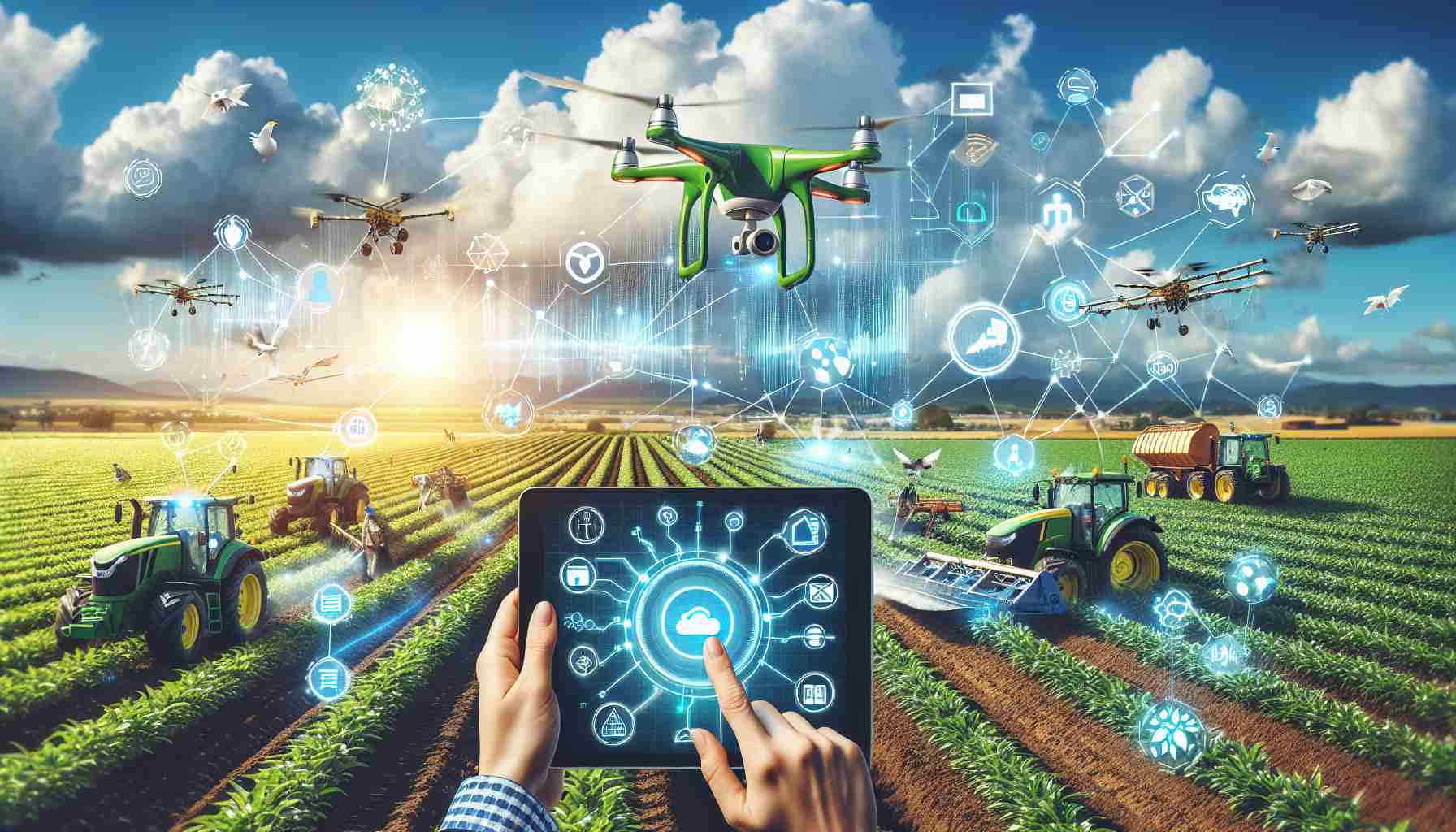Tunisian agriculture is poised to embrace a sustainable future by leveraging technological advancements and the Internet of Things (IoT). Inspired by personal experiences and a desire to tackle climate change impacts, young entrepreneur Mohamed Mekki Maalej has engineered an intelligent system that promises to revolutionize irrigation practices for farmers.
Maalej was driven to innovation when his father, a farmer unable to tend to his land due to being housebound, was in need of a solution. The insight led to the conception of a remote-controlled irrigation system, crafted by Maalej’s expertise in computer engineering and his passion for cutting-edge technology.
The inception of the startup ‘Irwise’ in 2023 marks a milestone for Maalej and his team of Tunisian entrepreneurs, all sharing a dedication to utilizing technology to overcome the challenges faced by local farmers. Their focus on smart irrigation and water consumption efficiency is materialized in systems priced between 700 and 20,000 Tunisian Dinars, aiding not only the Tunisian farmers but also shining at international stages like the Viva Technologies fair in Paris.
With Irwise, farmers gain the ability to manage their farm’s main water pump through a mobile device. The system takes into account various factors, such as weather conditions, soil nature, and crop types to optimize water use. “The result has been a substantial conservation of resources,” an affiliate reported, citing a 35% decrease in water use, a 20% reduction in electric bills, and a 12% cut down on fertilizer and pesticide consumption, while boosting agricultural output by 15%.
Irwise’s AI-driven tools offer a detailed understanding of soil moisture, plant species, and even specifics like an individual tree’s blooming period. Furthermore, they provide farmers with real-time updates on weather forecasts and other crucial data to ensure informed decision-making regarding irrigation and fertilization.
Important Questions and Answers:
- What is IoT, and how is it applied in agriculture? – Internet of Things (IoT) refers to a network of connected devices that communicate and share data. In agriculture, IoT devices can monitor soil conditions, weather, plant health, and more, transmitting this data to farmers for better farm management.
- Can this technology be applied to different types of agriculture? – Yes, IoT and AI can be tailored to suit various agricultural sectors, from arable farming to horticulture and livestock management.
- What are the key challenges facing AI and IoT integration in agriculture? – Challenges include high initial costs, the need for technical know-how, data privacy concerns, and the reliability of connectivity in rural areas.
Key Challenges and Controversies:
- Adoption Barriers: Farmers may resist adopting new technologies due to the inherent costs, the complexity of the systems, and the required shift in traditional practices.
- Data Security: As with any IoT system, there’s a risk of data breaches, leading to concerns about the security of sensitive agricultural data.
- Technological Literacy: In regions with less exposure to technology, the successful implementation of these systems necessitates education and training.
Advantages of Using AI and IoT in Agriculture:
- Resource Efficiency: Improved management of water, fertilizers, and pesticides leads to cost savings and reduced environmental impact.
- Increased Productivity: AI-driven analytics can lead to better yield predictions and farming strategies, enhancing overall farm productivity.
- Real-time Monitoring: Continuous data collection from the field allows for timely interventions, reducing the risk of crop failure.
Disadvantages:
- Infrastructure Needs: IoT systems require reliable internet connections, which may not be available in all areas.
- Initial Investment: The cost of installing advanced systems can be prohibitive for small-scale farmers or those in developing economies.
- Complexity: Managing and interpreting the data provided by AI and IoT systems can be challenging without the necessary skills.
For further exploration, here are some related links:
Food and Agriculture Organization
International Telecommunication Union
It should be noted that incorporating AI and IoT into Tunisian agriculture is a step towards modernization that aligns with global trends. While such technology can significantly enhance farming practices, its implementation must carefully consider the local context, balance costs with benefits, and ensure that farmers are supported throughout the transition.

